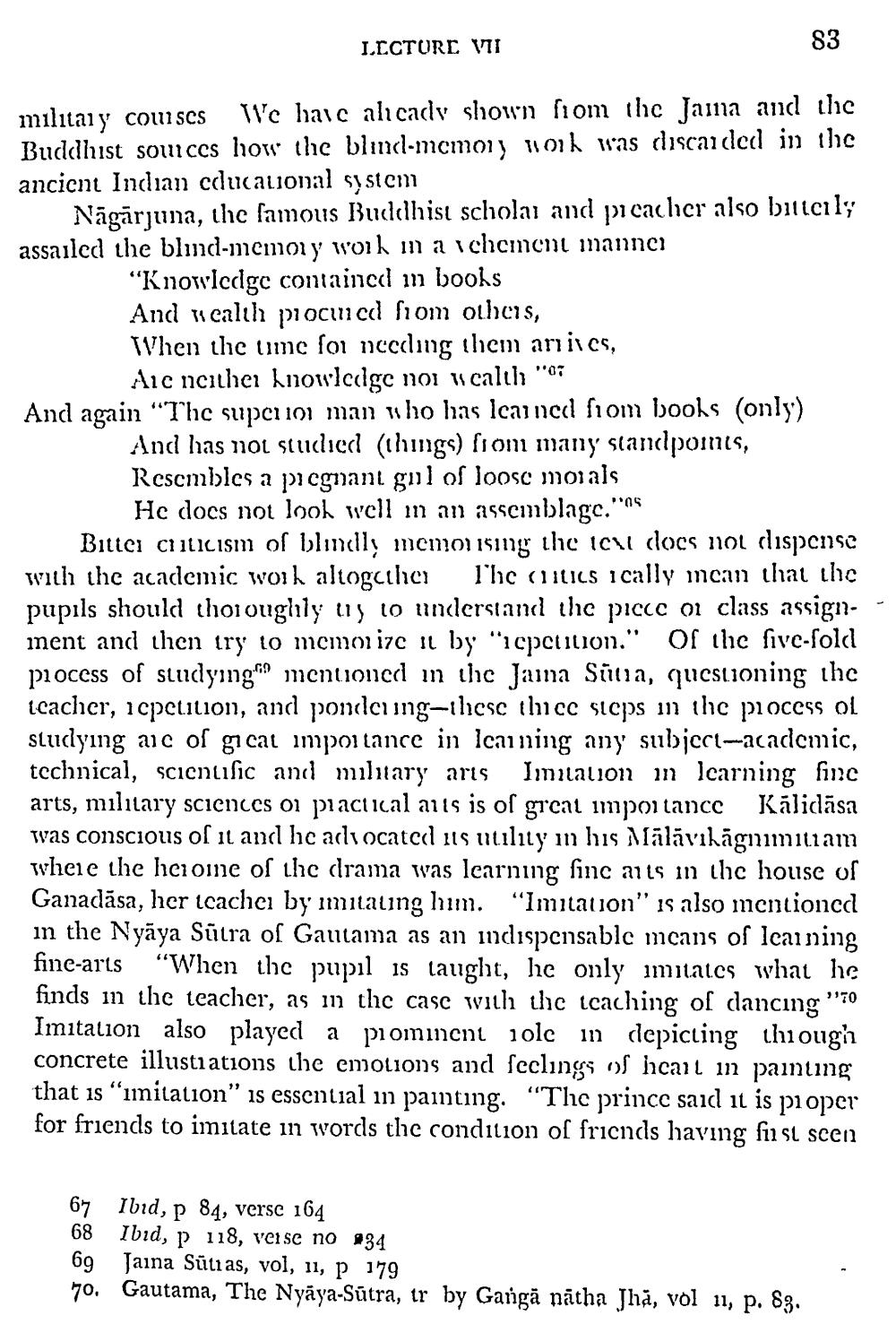________________
LECTURE VII
83
military courses We have alıcady shown from the Jaina and the Buddlust sources how the blind-memory rok was discarded in the ancient Indian cducational system
Nāgārjuna, the famous Buddhist scholar and picachcr also bilicil; assailed the blind-memory work in a chemcnt mannci
"Knowledge contained in books And nicalih prociucd from others, When the umc soi nccdmg them arrives,
Aic neither knowlcgc noi ucalth **** And again "The supcuoi man who has Icained from books (only)
And has not studied things) from many scancponis, Resembles a picgnant gul of loose morals
Hc docs not look well in an assemblage."as Biltei criticism of blıely memoiising the icu docs nou dispense with the academic work altogchci lhe clics ically mcan that the pupils should thoroughly 11y lo understand the piccc oi class assign-- inent and then try to memorize it by "icpctition." Of the five-fold process of studying "mentioned in thic Jama Sūna, questioning the [cacher, icpetition, and pondcung-ılıcsc thuice sicps in the process of studying aic of gical importance in Icaining any subjcci-academic, technical, scientific and m uary aris Imilalion in Icarning fine arts, military sciences or practical arts is of great importance Kálidāsa was conscious of it and hc aclıocated its utility m his Mālāvihägnimitiam where the heroine of the drama was learning fine arts in the house of Ganadāsa, her icachcı by imitaling lam. “Imitauon" is also mentioned in the Nyāya Sülra of Gautama as an indispensable means of Icaining fine-arts “When the pupil is taught, he only imitatcs what he finds in the teacher, as in the case with the tcaching of dancing "70 Imitation also played a prominent role in depicting thiough concrete illustrations the emotions and seclings of hcail in painting that is “imilation” is essential in pamting. "The prince said it is proper for friends to imitate in words the condition of friends having fust scen
67 Ibid, p 84, verse 164 68 Ibid, p 118, verse no 934 69 Jaina Sūlias, vol, 11, p 179 70. Gautama, The Nyāya-Sūtra, tr by Gangā nātha Jhā, vol 11, p. 83.




